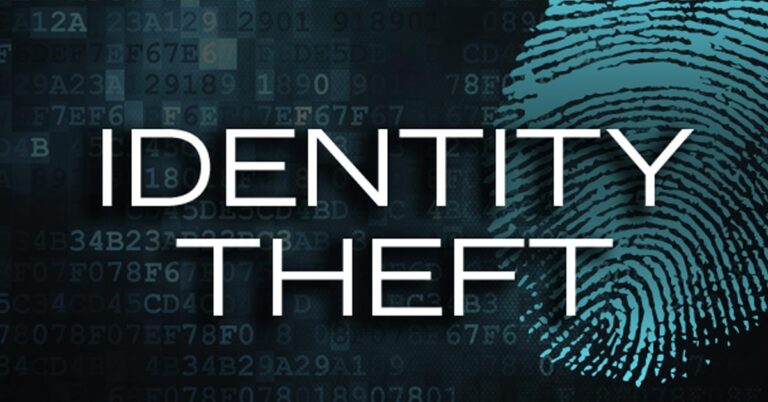Cyber Crime – A Threat to Every Internet User
According to the Federal trade Commission (FTC), there are around 10 million reported cases of identity theft each year in the United States. A recent report by Eugene Kaspersky, founder and head analyst of Kaspersky Labs (a leading internet security company), indicates that the level of criminal activity on the internet has doubled in the past year, and there is reason to believe this trend will continue to grow exponentially in the future.
Cyber crime has become a serious problem for everyone who uses the internet. The biggest threats to all internet users are malicious software programs known as crimeware and social engineering schemes, often referred to as phishing and pharming scams.
Although computer viruses have always presented a big problem regarding potential loss of data or damage to our computers, spyware and phishing scams are where the real danger is. These forms of internet crime don’t hurt our computers – they cause personal damage.
What Are The Formulas Used n Cyber-Crime
Spyware

The most common form of crime-ware comes in the form of spyware, which is a small program or piece of code that is designed to “spy” on your online activity and/or personal information. There are many types and forms of spyware and new versions are introduced into the internet every day.
Although not all spyware is used for illegal purposes, much of it can be very dangerous due of its ability to record keystrokes, take snapshots of our PC screen, and monitor everything we do online. Spyware usually installs without anyone’s knowledge and runs silently in the background.
The information gathered by spyware is secretly transmitted to the person who planted it. It is sometimes sent out via email without our knowledge, but more often it is relayed to a hijacked “slave” computer, where it is picked up by the criminal who installed it. He/she will either use it to access bank accounts or credit cards, sell it to another thief, or perhaps steal our identity altogether.
Some spyware is used to “hijack” computers, turning them into “slaves” that are used to collect and store data that was obtained illegally. The computer’s owner rarely knows that his PC is being used to house illegal information. Many “slave” computers are also used to help social engineers collect data via Pharming scams.
Phishing Scams
One of the most popular criminal activities on the internet is Phishing. In fact, this type of scam is so prevalent that an estimated 99% of email users have seen at least one phishing scam in their inbox. Phishing is mostly done via email, and is usually performed in conjunction with Pharming. Social engineers often send email letters that appear to come from your bank or other financial institution. The message urges you to click the link, log in, and verify your credentials. These emails sound and look very legitimate, and this is why so many people follow through by clicking the link.
Pharming
Once a person has clicked a link in a fraudulent Phishing email, they are taken to a website that appears to be legitimate. This is because the social engineer has copied the home page of the financial institution. What most victims don’t realize is that the website they are on is really in some third world country, or on a “slave” computer that has been hijacked by spyware. The Pharming occurs when the person enters his/her credentials to “log on” to their account. This provides the Pharmer with all the information he needs to quickly wipe out the account or charge up a fortune on the associated credit card.
How to Protect Yourself Online
There are several things you can do to protect yourself from cyber-crime. The most obvious is to use good internet security products. At minimum, everyone who uses the internet should be using a good personal firewall, anti-spyware software, and anti-virus software.
The easiest, most effective way for most home computer users to stay protected is to purchase an internet security suite. A suite will include antivirus, anti-spyware/anti-adware, software firewall, and possibly some extras like a spam filter and password protection software. Suites are easy to use because everything is controlled via one interface.
There are many “free” things you can and should do to protect yourself from cyber-crime, such as keeping your computer’s operating system and all applications up-to-date. This combined with the implementation of cautious browsing and email habits will have a big impact on your safety.
Cyber-crime Goes Social and Mobile
‘Cyber-crime‘, a word most of us know; but a better clarification on the same is good before we begin. Cyber-crime holds a broad array of activities or incidents, some of which include computer viruses or malicious software, forging, spoofed/fake email or website which captures personal details, online bullying/ stalking, hate crime or other form of online harassment, hacking into personal profile/account, scams, online credit card fraud, identity theft, an unsolicited SMS text messages, and so on.
As above, Cyber-crime can be anything, which includes data theft or breach, without the owner’s permission. As consumers go mobile, so do criminals. Hence, compared to the earlier attempts of cyber-crime over Desktops, now attackers are more oriented on mobile and social networking. A mixture of socially engineered and blended attacks is what attackers are now using.
Cyber-crime over Mobile device News like ‘iPhone 5 Pre-Orders Top Two Million in First 24 Hours’ displays how indispensable mobile devices have become for us today. According to the ‘2012 Norton Cyber-crime Report’, every 2 of 3 adult uses a mobile device to connect to the internet today. The increase on mobile usage is also realized by the Cyber-criminals.
The bait that attracts cyber-criminals is not the vast usage of mobiles but also the numerous hidden vulnerabilities in them. Mobile vulnerabilities doubled in 2011 over 2010. That in itself is alarming. But apart from these facts, the matter to worry more is the fact that 44% people aren’t even aware that security solutions exist for mobile devices. Every 2 out of 3 persons don’t have security for their mobile devices. Using unsecured Wi-Fi connections is yet another source of vulnerabilities.
Socially engineered Cyber-crime Apart from Mobile, with increasing usage of social media, cyber-criminals are also going social now. Figures say that, every 4 people out of 10 people have been a victim of cyber crime through social sites. While some complain their accounts have been hacked, others are concerned about their accounts being eyed upon. Apart from this, 1/3rd of the population using social networking sites have fallen victim to the scams on such sites.
The major reasons behind most attacks through social platforms are:
1/3rd of the users don’t log out from one session 1/5th among the users don’t check the link before clicking on it 1/6th people aren’t aware about their privacy settings, and lastlyLess than half don’t use any security measures to protect their accounts.
Apart from these issues, 36% users accept friend requests from strangers, increasing their vulnerabilities.
What can be done? Social sites are taking a toll on our personal lives. Numbers say 16% would end a relationship, as a reason of something they didn’t like about the person online. Hence being on your marks and taking measures to ensure good privacy settings is helpful. Measures like deleting suspicious mails/comments/links, use a basic anti-virus, avoid opening attachments from unknown senders, and so on; can be highly useful.
Take pro-active steps to secure you personal data online. If you won’t; no one would. If something is too good to believe, then you may be right; I am talking about advertisements and applications appearing on social sites, which trick users, with lucrative statements and promises. Be on your guard by staying informed. Use strong passwords, and make it a habit to change them often. Efforts taken by you to protect your data will surely increase the difficulty levels for criminals to attack you. Fear of attacks should never deprive anyone of the huge benefits of using internet through mobile devices and networking socially.
Hence ensure security measures and reap the benefits to your fullest.
Note: Majority of figures/statistics used in this article are from 2016 Norton Cybercrime Report
Talking about solutions, to such Cyber-crime attacks, Cyberoam Unified Threat Management appliances offer comprehensive security to small, medium and large enterprises through multiple security features integrated over a single platform. It is the first UTM that embeds user identity in the firewall rule matching criteria, offering instant visibility and proactive controls over security breaches and eliminating dependence on IP Addresses. Its, Layer 8 [Identity-based security] Technology platform makes security simple, yet highly effective. Cyberoam, with its Extensible Security






